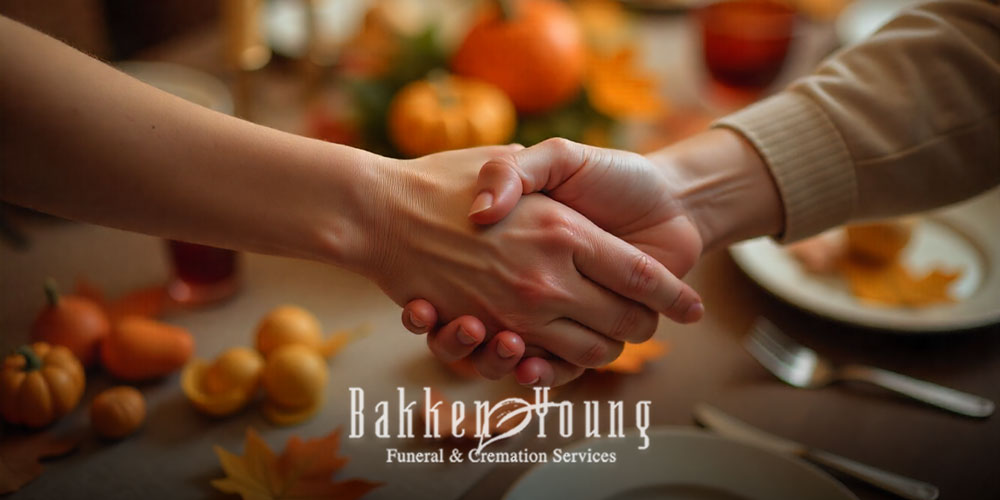Thanksgiving is a time we often associate with gratitude, togetherness, and celebration. But for those coping with loss, the holiday can bring a wave of difficult emotions—reminders of who’s missing, routines that feel forever changed, and the struggle to balance gratitude and grief. If someone you care about is entering this season with a heavy heart, your support can make all the difference. Here is our guidance on how to support grieving friends and family at Thanksgiving.
1. Acknowledge Their Loss
Ignoring loss or hoping it will go unmentioned can make someone feel even more alone. A simple, sincere acknowledgment—“I know this Thanksgiving might feel different for you”—can show your friend or family member that their grief is seen, respected, and welcome at the table. If you’re unsure, a gentle note or text can mean as much as saying it face-to-face.
2. Offer an Open Invitation (Without Pressure)
Holidays are often social, but grief can bring a need for solitude or quiet. If you’re hosting, make it clear that your invitation is without pressure and there’s no need to put on a “brave face.” Consider sharing, “You’re welcome whether you feel up to coming for a short visit or want to stay the whole day. We’d love to see you in whatever way feels right.”
In Of Three Hearts by Nate Musser, a family that lost a loved one is invited to a Christmas meal. The family enjoyed time with their friends but experienced a moment of sadness and needed to step away. While the friends supported this grieving couple, the couple was only able to stay for as long as they could handle, since this was the first Christmas without their loved one. The friends were understanding and supportive. Sometimes just spending moments with a grieving friend can make all the difference, as described in this example.
3. Honor Their Loved One’s Memory
If the time feels right, look for gentle opportunities to honor the person who has passed. Lighting a candle, sharing a favorite story, keeping an empty chair, or inviting others to write memories on slips of paper are all simple, meaningful rituals. Ask your grieving friend or family member if they would appreciate these gestures—and respect their wishes if they’d rather not.
4. Help With Practical Details
Grief saps energy, and tasks like cooking or cleaning may feel overwhelming. Offering tangible help is a concrete way to show you care—drop off a home-cooked dish, help set the table, or pitch in with the dishes afterward. If you sense they want time alone, a doorstep delivery or a text saying, “No need to answer now, but I’m here if you need a hand” can bring comfort.
5. Listen and Be Present
You don’t need the perfect words to be a source of comfort. Sometimes, simply offering your presence—whether through a quiet walk, a warm cup of coffee, or a silent moment together—says more than anything else. Let them share memories, tears, or even laughter without judgment. Let them steer the conversation, and offer gentle empathy: “I’m here for you, in whatever way you need.”
6. Remember Grief Doesn’t Have a Timeline
Grief doesn’t fade just because the holiday ends. Continue to check in after Thanksgiving, especially as other holidays approach. A message weeks—or even months—later saying, “Still thinking of you,” reminds loved ones their loss is not forgotten.
Closing Thoughts
Thanksgiving can be bittersweet for those who are grieving. Small, compassionate gestures can help friends and family feel less alone, gently connecting gratitude and remembrance. We hope these ideas offer support as you walk beside someone facing loss this season.
We’re here for you, in every season.


Add Comment